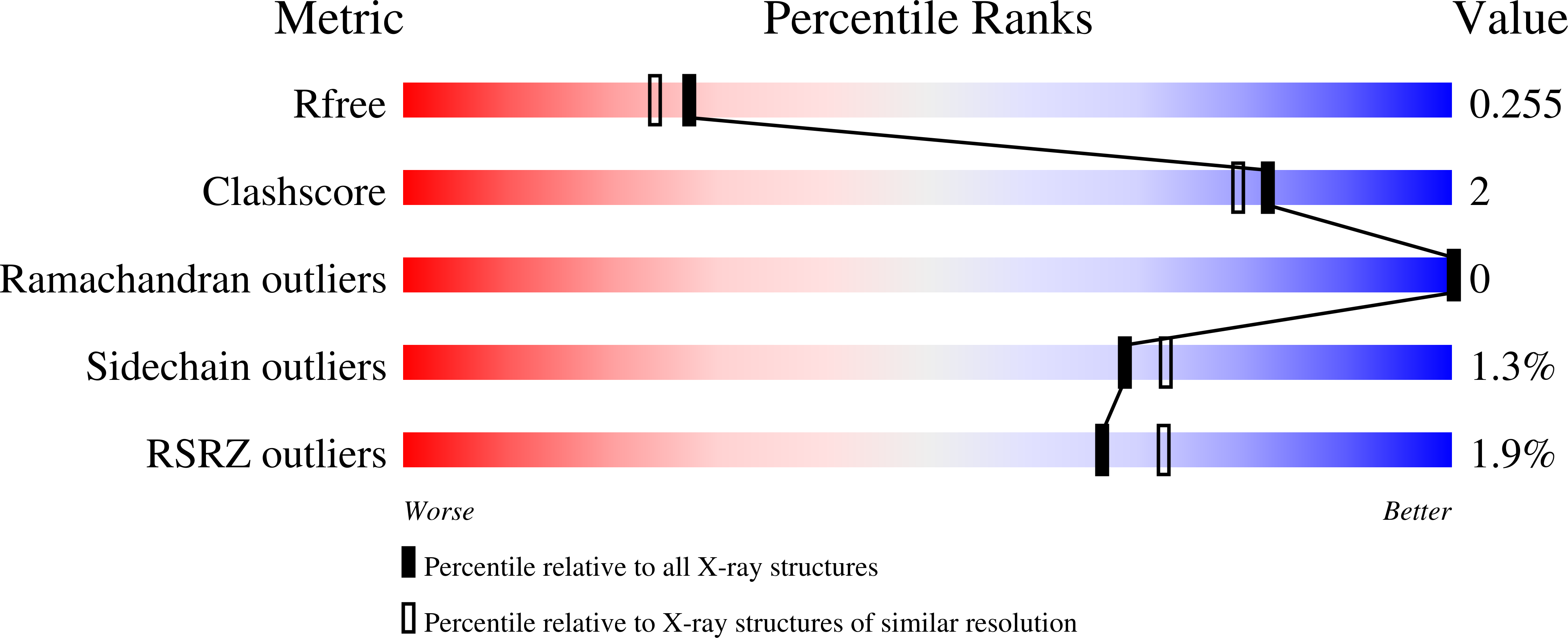Rational Design of Orthogonal Multipolar Interactions with Fluorine in Protein-Ligand Complexes.
Pollock, J., Borkin, D., Lund, G., Purohit, T., Dyguda-Kazimierowicz, E., Grembecka, J., Cierpicki, T.(2015) J Med Chem 58: 7465-7474
- PubMed: 26288158
- DOI: https://doi.org/10.1021/acs.jmedchem.5b00975
- Primary Citation of Related Structures:
5DD9, 5DDA, 5DDB, 5DDC, 5DDD, 5DDE, 5DDF - PubMed Abstract:
Multipolar interactions involving fluorine and the protein backbone have been frequently observed in protein-ligand complexes. Such fluorine-backbone interactions may substantially contribute to the high affinity of small molecule inhibitors. Here we found that introduction of trifluoromethyl groups into two different sites in the thienopyrimidine class of menin-MLL inhibitors considerably improved their inhibitory activity. In both cases, trifluoromethyl groups are engaged in short interactions with the backbone of menin. In order to understand the effect of fluorine, we synthesized a series of analogues by systematically changing the number of fluorine atoms, and we determined high-resolution crystal structures of the complexes with menin. We found that introduction of fluorine at favorable geometry for interactions with backbone carbonyls may improve the activity of menin-MLL inhibitors as much as 5- to 10-fold. In order to facilitate the design of multipolar fluorine-backbone interactions in protein-ligand complexes, we developed a computational algorithm named FMAP, which calculates fluorophilic sites in proximity to the protein backbone. We demonstrated that FMAP could be used to rationalize improvement in the activity of known protein inhibitors upon introduction of fluorine. Furthermore, FMAP may also represent a valuable tool for designing new fluorine substitutions and support ligand optimization in drug discovery projects. Analysis of the menin-MLL inhibitor complexes revealed that the backbone in secondary structures is particularly accessible to the interactions with fluorine. Considering that secondary structure elements are frequently exposed at protein interfaces, we postulate that multipolar fluorine-backbone interactions may represent a particularly attractive approach to improve inhibitors of protein-protein interactions.
Organizational Affiliation:
Department of Pathology, University of Michigan , Ann Arbor, Michigan 48109, United States.



















